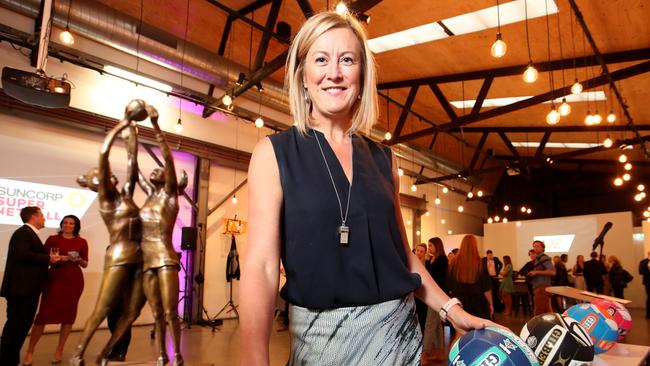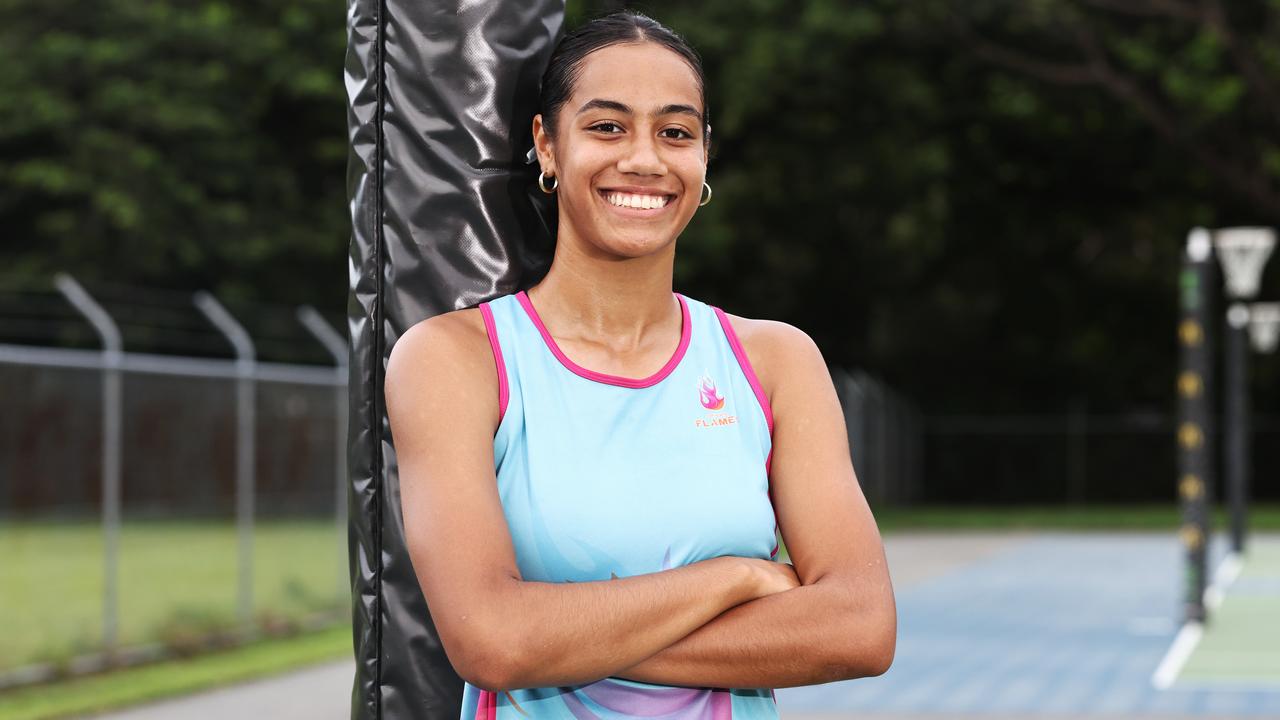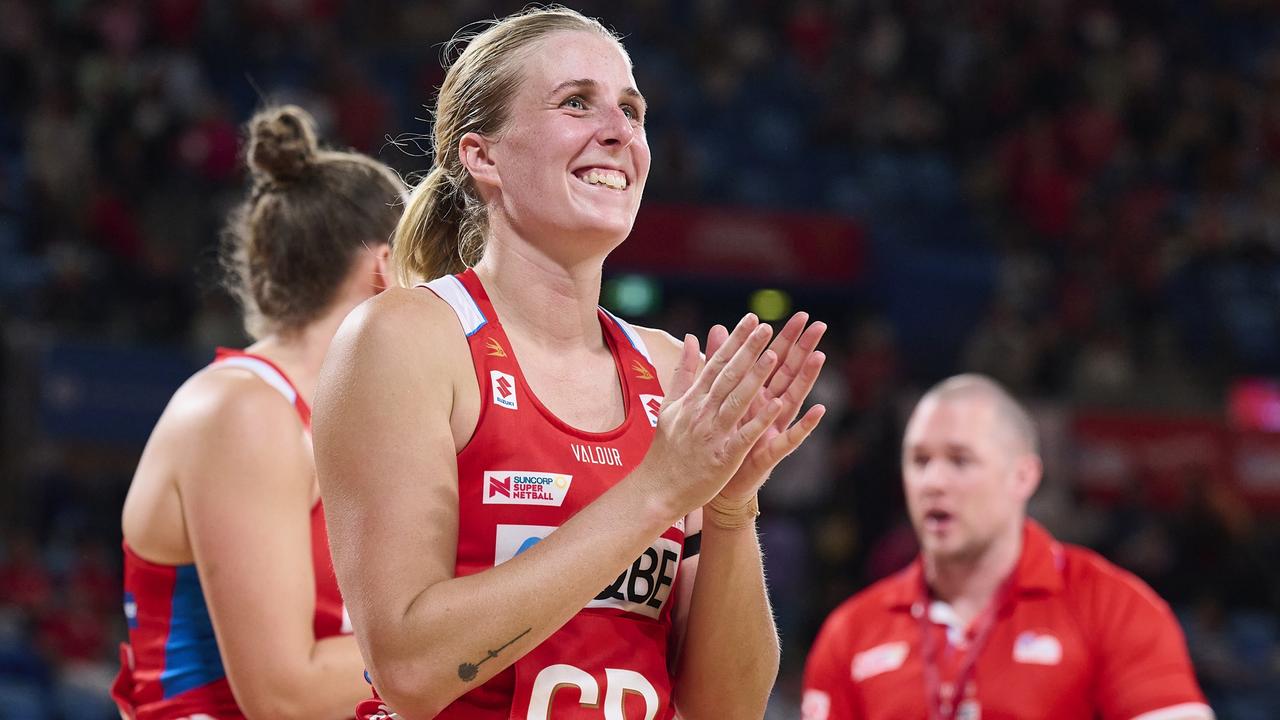Netball the forgotten giant of women’s sport
Netball’s leaders are opening up about the frustration they’ve felt as other sports get credit for supporting female athletes.

Netball’s leaders are finally opening up about the frustration they’ve felt over the past three years as other sports get all the credit for playing catch-up in women’s sport.
NSW Swifts coach Briony Akle broke the ice last week in a column for Players Voice in which she wrote “the women’s competitions which have grown rapidly in recent years have a long way to go to match the system netball has created over a very long period of time”.
Netball Australia chief Marne Fechner seconded this perspective in an interview with The Australian on Tuesday, adding that netball needs to start telling it’s story with less humility.
It’s a mindset that is shared widely among the netball community but never put on the record for fear of talking down the general rise of women’s sport.
Australia’s netball community desperately wants to avoid pitting female athletes against each other in a replication of the code wars that run through Australia’s major winter sports. But the uncomfortable truth is netball has to undergo some drastic transformations in the next 24 months or risk being left behind in the field of women’s sport in Australia.
There is an enormous amount riding on this year’s television ratings. Netball Australia will begin conversations with Nine and Telstra later this year on a new broadcast agreement. The current deal expires after the 2021 season.
There is also a new collective bargaining agreement with the players due before the next season. Many players took short Super Netball deals with an eye to renegotiating under the new CBA.
With that in mind, strong growth this year is imperative, especially after a bumper AFLW grand final that broke attendance records and drew national attention.
Some of this is simple finances. Netball lacks the fiscal heft that cricket, Aussie rules and rugby league can throw behind women’s codes. Football and basketball also benefit from the halo effect of substantial investments in the sport around the world.
It’s too simple to just chalk this up to money, though.
Netball’s story is one of success won by remarkable persistence and patience. The sport has pulled itself up by the bootstraps over decades, with a small army of female volunteers growing the game with little support.
Retired players always speak about the sacrifices they made to lay the groundwork for today’s Super Netball environment. As recently as 15 years ago the best athletes in this sport had to buy their own elastic tape for strapping. They knew if they demanded more it would simply bankrupt the sport.
Little by little, though, players and administrators worked together and ground out a better commercial future. That legacy has been a mindset of conservative and responsible management, and always leaving money in the bank.
But today’s landscape is one of drastic change. Participation, support and investment in other women’s codes is exploding.
Super Netball is the best example of an elite female league in Australia today.
The sport has spent decades developing its own infrastructure that turns out top-shelf athletes. Coaches in Australia regularly visit national coach Lisa Alexander and her Diamonds to learn about the high-performance program she runs.
But it’s hard to sell audiences and sponsors this story of incremental improvements on a fantastic product at a time when so many other sports are taking huge leaps off a lower base.
Netball simply must find a circuit breaker here, and a way to change the way people view it in Australia. It needs a Tayla Harris, or a Sam Kerr. The biggest name in the game was Sharni Layton, who retired in August to pursue a career in AFLW.
Administrators have talked for years about their desire to spice up netball, make it less vanilla. But that has proven a difficult challenge. Perhaps it’s another legacy of a sport that’s proud of just getting on with the job instead of causing a fuss.
Yes, this sport faces serious structural disadvantages in an increasingly busy space. But netball has a proud history of succeeding despite these kind of setbacks.
In a transformative era for female athletes in Australia, netball administrators now have to find a way to transform a mindset that has delivered enormous results but may not be able to carry the sport forwards.



